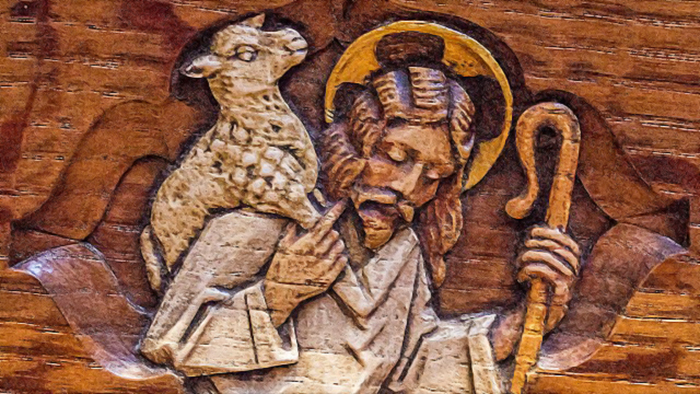
Our gospel today speaks of the shepherd and why one is needed in our lives. There is the story of a young woman who grew up in a pious and religious home and, after attending college, had moved away from church attendance or any aspect of a prayer life. On a trip to visit her sister in Colorado to spend time skiing, her sister invited her to go with her to mass on the Sunday she arrived, but she politely refused and went skiing instead. She hit a tree on her first run down the slopes and broke her leg. After being released from the hospital for rest at her sister’s residence, her sister once again asked her to come to mass with her the following Sunday. With “nothing better to do,” she said yes. It was Good Shepherd Sunday, and the presiding priest was visiting from Israel. In his homily, he spoke of the custom among shepherds in Israel that existed in the time of Jesus and is still practiced today. “Sometimes very early on in the life of a lamb, a shepherd senses that it will be a congenital stray, that it will forever be drifting away from the herd. What that shepherd does then is deliberately break its leg so that he must carry it until its leg is healed. By then, the lamb has become so attached to the shepherd that it never strays again.” That providential story woke her from the fifteen years of distance from God. John of the Cross once wrote that the language of God is the experience God writes into our lives. James Mackey once said that divine providence is a conspiracy of accidents. What this woman experienced that Sunday was precisely the language of God, divine providence, God’s finger in her life through a conspiracy of accidents. Now, God does not start fires, floods, wars, AIDS, or anything else of this nature. Nature, chance, human freedom, and human sin bring these things to pass. However, saying that God does not initiate or cause these things is not the same as saying that God does not speak through them. God speaks through chance events, both disastrous and advantageous ones. In the conspiracy of accidents that make up what looks like ordinary secular life, the finger of God is writing. We are children of Israel and Christ (and of our mothers and fathers in the faith) when we look at every event in our lives and ask ourselves: “What is God saying to us in all of this?”
